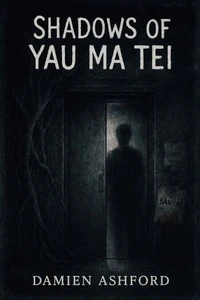The peace after the city's reconstruction came at a price: it was written into a new ledger. The Curator trims history with procedural calm; the Weavers, working in secret, rearrange memories with residue and craft. When governance becomes the power to decide what is remembered, lives themselves become negotiable records. Vincent thought his compass would only tell him which way to walk. He never imagined the brass could nudge moments-reorder images, smooth a wrinkle in time-or that every minor correction would cost someone else a memory.
Sophie's decisions cut sharper than knives; Caleb's compromises read like a ledger of gray debts; Mara's very existence is living counterevidence. When a law for "stabilization" is passed, when donors trade protection for influence, and when the Weavers plot a sweeping operation called the Great Weave, the city is no longer merely a stage but a fabric to be stitched, edited, and judged. Set across projection rooms, public rituals, clandestine workshops, and the ragged edges of the Open Rim, this second volume stages a bitter contest over the politics of remembrance.
A resistance tries to return images to the people; the Curator packages chaos into policy; the Weavers both destroy and repair. Each choice creates a new debt-some names are restored, others vanish forever. For readers who relish idea-driven speculative fiction, political intrigue, and moral paradox, this is a novel that interrogates how power is exercised through memory. It refuses tidy answers while forcing difficult questions: who gets to say what counts as real? What price will a society pay to be rendered legible? And how do love and loyalty survive in a world that can edit its past?Perfect for book clubs, readers of literary speculative fiction, and anyone drawn to stories about truth, history, and the ethics of remembrance.
The peace after the city's reconstruction came at a price: it was written into a new ledger. The Curator trims history with procedural calm; the Weavers, working in secret, rearrange memories with residue and craft. When governance becomes the power to decide what is remembered, lives themselves become negotiable records. Vincent thought his compass would only tell him which way to walk. He never imagined the brass could nudge moments-reorder images, smooth a wrinkle in time-or that every minor correction would cost someone else a memory.
Sophie's decisions cut sharper than knives; Caleb's compromises read like a ledger of gray debts; Mara's very existence is living counterevidence. When a law for "stabilization" is passed, when donors trade protection for influence, and when the Weavers plot a sweeping operation called the Great Weave, the city is no longer merely a stage but a fabric to be stitched, edited, and judged. Set across projection rooms, public rituals, clandestine workshops, and the ragged edges of the Open Rim, this second volume stages a bitter contest over the politics of remembrance.
A resistance tries to return images to the people; the Curator packages chaos into policy; the Weavers both destroy and repair. Each choice creates a new debt-some names are restored, others vanish forever. For readers who relish idea-driven speculative fiction, political intrigue, and moral paradox, this is a novel that interrogates how power is exercised through memory. It refuses tidy answers while forcing difficult questions: who gets to say what counts as real? What price will a society pay to be rendered legible? And how do love and loyalty survive in a world that can edit its past?Perfect for book clubs, readers of literary speculative fiction, and anyone drawn to stories about truth, history, and the ethics of remembrance.

 , qui est-ce ?
, qui est-ce ?